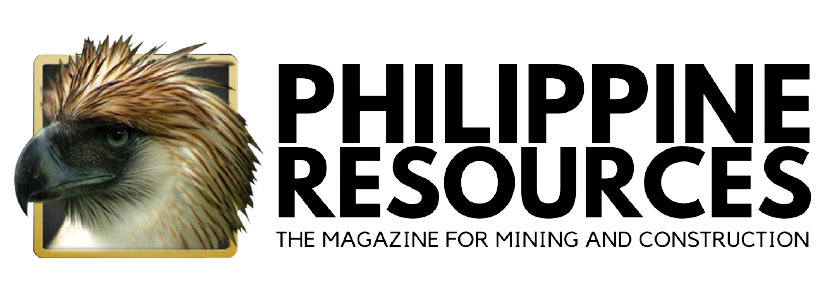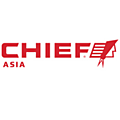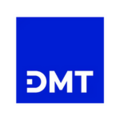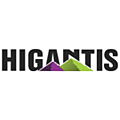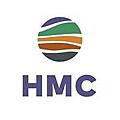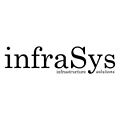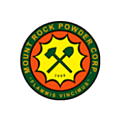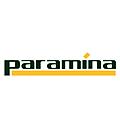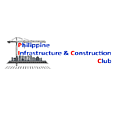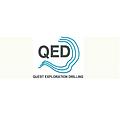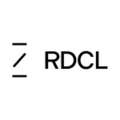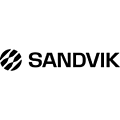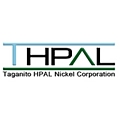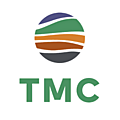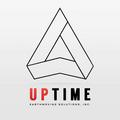Latest News
Trending News
Apex Mining Co., Inc. received the bronze award as the Best Managed Company in the Philippines under the Basic Materials category at the Asia’s Best Companies 2025 organized by Finance Asia.
According to Luis R. Sarmiento, ASEAN Eng., “This award brings us closer to our vision of being the country's leading, globally recognized responsible mining conglomerate by 2035.”
The Asia’s Best Companies is based on nomination by Asia’s active community of influential investors and financial analysts as they evaluate the corporate behavior and performance of Asian companies across varied sectors and markets.
In accepting the award, Billy G. Torres, the company’s Chief Finance Officer, says, “Apex Mining is committed to be a company worthy of the trust and confidence of our shareholders and stakeholders.”
“More importantly, we are committed to be a model of responsible mining.”
The awards ceremony of the Asia’s Best Companies was held at the Conrad Hotel in Hong Kong on 17 June 2025.
Advancing the infrastructure development agenda of President Ferdinand R. Marcos Jr., the Department of Public Works and Highways (DPWH) is set to commence the feasibility study for the Urgent Bridges Construction Project for Rural Development (UBCPRD) Phase II — a major initiative designed to enhance inter-regional connectivity and promote inclusive economic growth across the Philippines.
Led by DPWH Secretary Manuel M. Bonoan, with the oversight of Senior Undersecretary Emil K. Sadain, who is in charge of Official Development Assistance (ODA)-funded infrastructure flagship projects under the Build Better More program, the feasibility study will be funded through Asian Development Bank (ADB) Loan No. 3886 – PHI (Infrastructure Preparation and Innovation Facility – Additional Financing) under a contract valued at ₱694.44 million.
The consulting services, scheduled to officially begin on June 7, 2025, will cover the feasibility study for the construction and/or replacement of 25 priority bridges across 11 regions, with a total estimated combined length of 18.78 kilometers of bridge and approach roads.
“By expanding bridge infrastructure with ten (10) in Luzon, six (6) in Visayas, and nine (9) in Mindanao, the project is expected to enhance transport efficiency, strengthen disaster resilience, and boost local economies —especially in remote and underserved areas. It also directly aligns with President Marcos’ national priorities of balanced regional development and modern infrastructure connectivity”, said Senior Undersecretary Sadain.
A formal kick-off meeting between DPWH Bridges Management Cluster – Unified Project Management Office (BMC-UPMO) under Project Director Rodrigo I. Delos Reyes, ADB, and the consulting consortium, composed of SMEC International Pty Ltd. (lead) in joint venture with Oriental Consultants Global Co., Ltd., COWI A/S, SMEC Philippines Inc., and associated with Pacific Rim Innovation and Management Exponents, Inc. (PRIMEX), was held Tuesday, June 3, 2025 to mark the start of the consulting services, following the approval of the Contract Agreement on May 9, 2025, and the issuance of the Notice to Proceed (NTP) on May 20, 2025, which was accepted by the consultant on May 28, 2025.
Other notable attendees of the kick-off meeting include ADB Transport Sector Group - South East Asia Department Director Dong Kyu Lee, SMEC International Pty, Ltd./OCG/COWI A/S JV Project Manager/Sr. Highway Engineer Gavin Strid, SMEC Philippines President and Country Manager Hilario M. Pastrana, UPMO-BMC Project Managers Nina Y. Maniaul and Judee Ann D.R. Santillan, and representatives of DPWH Planning Service, Bureau of Quality and Safety, Bureau of Design, Stakeholders Relations Service, and UPMO-Roads Management Cluster II (Multilateral).
The consulting consortium will carry out the feasibility study within the period of 24 months and will form the basis for the detailed design and construction phases of the project.
Priority bridges include conventional pre-stressed concrete girder (PSCG) bridges such as the Bacarra Bridge (parallel) in Bacarra, Ilocos Norte; Quirino Bridge (parallel) in Bantay, Ilocos Sur; Kalabaza-Villa Fugu Bridge and Lalog Bridge in Isabela; Alag Malaki Bridge (parallel) in Baco, Oriental Mindoro; Malitubog Bridge in Alamada, Cotabato; Simuay Bridge in Sultan Kudarat, Maguindanao; and the Talacogon Steel Bridge in Agusan del Sur.
The iconic cable-stayed bridge category includes the Buntun and Enrile bridges in Cagayan; the New Mancatian Bridge along the Angeles-Porac-Floridablanca-Dinalupihan Road in Central Luzon; the Daram-Talalora Bridge on Daram Island, Samar; and Wawa Bridge in Bayugan City, Agusan del Sur.
Also included are iconic arch bridges such as the Amnay Bridge in Sablayan, Occidental Mindoro; Araneta Bridge (new) in Bago City, Negros Occidental; Biliran Bridge (parallel) and Baliacao Bridge (parallel) in Eastern Visayas; Layog Bridge (parallel) in Mahaplag, Leyte; Calbiga Bridge in Samar; and Tamontaka Bridge in Cotabato City.
The lone iconic extradosed cable-stayed bridge is the proposed Manguisoc Bridge in Mercedes, Camarines Norte, while the iconic steel truss bridge is the new Butuan Bridge in Butuan City, Agusan del Norte. Rounding out the list are iconic arch truss bridges including Quezon Bridge in Dipolog City; Disakan Bridge 2 (new) in Sindangan; and Ingin Bridge in Manukan, all in Zamboanga del Norte.
Without comprehensive geotechnical ground investigations, even the most advanced mining projects can face devastating delays, increased costs, and safety risks.
Geotechnical ground conditions are the single biggest risk to establishing a mine, its infrastructure including tailings storage facilities, large earthworks and tunnelling related projects. You must invest in geotechnical investigations sufficient to understand ground risk and develop credible mitigation plans.
There are three components to effectively ensure the value of your investment:
Build a solid plan built around the specific project risks, budgets and capability
Bring in people with long-term, proven expertise
Ensure your partner is equipped with the right tools that are well-maintained and highly reliable
RDCL Specialist geotechnical testing contractors provide high quality ground investigation and in situ measurements using surface and downhole geophysics and Cone Penetrometer Testing (CPT).
The company has the longest track record in the Philippines in the delivery of these tools, being involved in the establishment of many leading mines in the country since the early 2000’s. Our leading engineers acquire high quality data, passed to specialist technicians and reviewed by Lead Discipline experts.
RDCL Philippines is not yet ISO registered so cannot issue under that marque; all work undertaken by RDCL Philippines is to RDCL (NZ) standards and processes which are ISO 9001:2015 certified.
The Value of the Investment
Investing in detailed geotechnical investigations upfront not only reduces operational and safety risks but also minimizes the potential for costly delays and redesigns.
As the mining industry also faces increasing pressure to meet sustainability goals, RDCL's ability to provide precise ground data helps ensure compliance with environmental regulations, builds a knowledge base of data and helps ultimately to prove stability and surety to close the operation.
Scoping with a Bonafide Specialist
RDCL have 25 years’ experience handling complex geotechnical investigations for large scale mines and infrastructure. We hold world records for deep testing and have worked on we would say are all the leading mines in the Philippines.
Our seasoned engineers work intimately with the unique challenges posed by the Philippines' geology and operating environment. Their expertise has consistently delivered results that ensure safety and efficiency in even the most challenging conditions.
We are the most experienced and the best to have on your project.
How Does the Process Work?
You benefit by using us to oversee the technical aspects of your ground investigation program, conduct specialist tests and provide factual completion documentation. RDCL’s mission is to stay on task, manage uncertainty and execute to schedule and budget to avoid delays and overruns.
Our team works closely with yours to develop a detailed investigation plan that aligns with the project’s timeline, budget, and risk profile, ensuring all necessary tests are completed on time and within budget. We can further help you scope and specify and evaluate technical capability of contractors to produce data that accurately reflects the site conditions.
Our approach is to work in productive partnership with you and your team, and we are very adept at problem solving in real-time under difficult conditions. Specialist Tools
Specialist Tests
RDCL has an ongoing track record of specialist ground investigation techniques and making them available in the Philippines to greatly improve project outcomes.
Downhole Televiewers
These are widely deployed in the modern scene to much better constrain data and improved drilling returns. The use of Downhole Televiewers allows us to capture high-resolution images of the subsurface, improving our ability to identify structural weaknesses that could compromise mine safety.
Surface Geophysics
Surface geophysics enables acquisition of data across large length and links intrusive testing to enable interpretation of ground models and uncover potentially unforeseen conditions. At RDCL, we utilize advanced surface geophysical methods, such as seismic refraction and electrical resistivity, to gather data that informs our geotechnical analysis.
Cone Penetrometer Testing (CPT)
CPT for soft sediments and tailings is leading technology widely deployed in the rest of the world, and available through RDCL in the Philippines. CPT is fast, accurate, repeatable, and the most versatile in-situ soil test available. The data aids in many geotechnical assessments including liquefaction, bearing capacity (foundations) and settlement.
Electronic Shear Vane for testing soft cohesive materials in situ at depth
These techniques help us identify geological features such as fault lines, water tables, and rock properties that can impact the stability of mining operations, infrastructure projects, and tailings management.
For example, seismic refraction methods can reveal variations in bedrock depth or provide insights into rock strength, which are crucial for mine design and construction of safe, stable structures. Similarly, electrical resistivity surveys can detect areas of weakness or potential groundwater flow, which is essential for assessing risks to tailings dams or other earthworks.
By integrating surface geophysics with other testing methods like Cone Penetrometer Testing (CPT) or downhole televiewers, we create a comprehensive understanding of the ground conditions, enabling you to make better-informed decisions, mitigate risks, and improve the overall project outcome.
Make RDCL Your First Phone Call
RDCL’s combination of cutting-edge tools, unmatched experience in the Philippine market, and our collaborative approach sets us apart as the preferred partner for mining projects.
We have the people and equipment on the ground in the Philippines to execute high quality ground investigations, and our teams and tools are suited to your projects.
Together we combine our expertise with your design teams to execute any project. Contact us today to discuss how RDCL can enhance your mining project’s success with tailored, high-quality geotechnical services. Let’s set up a meeting to identify how we can support your objectives and deliver results.
(Conclusion)
By Noel B. Lazaro, Eveart Grace P. Claro, Judd Yonder L. Reyes, and Marielle D. Marbella
The global push for sustainability has reached a tipping point, compelling industries to accelerate their decarbonization efforts. Nowhere is this more critical than in mining—a sector paradoxically essential for the green transition yet burdened by its environmental footprint.
The first part of this article (see Issue 4 2024 – Editor) examined the Philippine mining sector’s decarbonization landscape, highlighting the challenges of attracting carbon project investments, the role of policy reforms, and the industry's response to emerging sustainability standards like Towards Sustainable Mining (TSM). It also explored legislative efforts, such as the Low Carbon Economy Investment Act and the Carbon Rights Act, to incentivize emissions reduction and integrate carbon markets.
This second part delves into the tangible steps mining companies must take to decarbonize, the barriers hindering progress, and the opportunities that could turn sustainability into a competitive advantage.
Metrics for Mother Earth
Sustainability reporting has become essential for businesses, particularly in mining. Since 2019, the Philippine SEC has mandated all listed companies to disclose their sustainability practices, achieving over 90% compliance. In 2023, the SEC reinforced this mandate with enhanced standards, including structured forms beyond narrative reporting to ensure thorough ESG disclosures.
An encouraging development is the SEC's move towards mandatory reporting, aiming to extend these regulations to unlisted firms.
Also, the Philippine Financial and Sustainability Reporting Standards Council (FSRSC) is introducing new reporting requirements for publicly listed extractive companies, mandating compliance with the International Financial Reporting Standards (IFRS) S1 and S2 by 2027. Developed by the IFRS Foundation's ISSB, these standards create a global framework for sustainability reporting, focusing on climate-related and financial issues that impact company value. IFRS S1 addresses general sustainability disclosures, while IFRS S2 targets climate-related disclosures, aiding companies in reporting how sustainability factors influence their long-term success and risk management.
The introduction of IFRS S1 and S2 significantly boosts board accountability in industries with major environmental impacts, particularly in addressing sustainability and climate-related issues. These standards mandate oversight of sustainability practices, measurable emissions reduction targets, and stakeholder transparency, positioning boards as environmental stewards. Non-compliance can impair asset values, reduce earnings, and erode investor trust.
With such standards, mining companies are set to establish trust among their stakeholders, thus attracting more investments with the promise of sustainability.
Gospel of Circular Living
The concept of a circular economy is fundamentally aligned with the principles of sustainability, focusing on reducing waste, maximizing resource efficiency, and promoting environmental regeneration. Unlike the traditional linear economy, which follows a "take-make-dispose" model, the circular economy emphasizes a closed-loop system where materials are reused, repaired, refurbished, and recycled to create a more sustainable, restorative system.
Viewing mining through the lens of the papal encyclical Laudato Si reveals the tension between humanity's resource needs and the moral duty to protect the planet. At a Vatican meeting on “Mining for the Common Good,” Pope Francis voiced concerns about profit-driven economic models that overlook environmental and human impacts. He advocated for a "circular economy" in mining, emphasizing resource reuse and waste reduction.
Circularity is essential in mining operations. Philippine mining companies must submit an annual environmental protection and enhancement program detailing measures to minimize extraction's adverse effects, including waste and tailings reduction, efficient water management, riverbank stabilization, progressive mine rehabilitation, and recycling of materials like tires and non-biodegradables.
The DENR complements the shift to a circular economy and low-carbon energy system through the Green Economy Program of the Philippines (GEPP). This initiative emphasizes integrated waste management and green technology. The GEPP aims to involve all government levels and private sectors in policy formulation and energy efficiency promotion.
Rohitesh Dhawan, CEO and President of the International Council on Mining and Metals (ICMM), describes how circularity can be made more impactful in an October 2024 report: “To achieve a circular economy at scale, innovative solutions are needed for both process and product.”
Treasure in Transition
The imperative to transition to a greener future embodies a paradox. The human activities driving carbon emissions are simultaneously vital for sustaining electrification, creating a delicate equilibrium between often opposing societal forces.
Consider the Tesla Model 3 that has a 50-82 kWh lithium-ion battery, using 2170 Nickel-Cobalt-Aluminum (NCA) batteries before 2023, and 2710 Nickel-Cobalt-Magnesium (NCM) batteries in vehicles manufactured in China and Berlin. Recently, Tesla adopted Lithium-Iron-Phosphate (LFP) batteries for the standard Model 3 (2021-2023). This highlights a critical issue: EVs rely on batteries, which require minerals, and minerals necessitate mining. This theme is central to Ernest Scheyder’s recent book, “The War Below: Lithium, Copper, and the Global Battle to Power Our Lives,” which examines the conflicts arising from the demand for essential metals.
Scheyder illustrates the complex interplay involving mining companies seeking to extract metals for value and revenue, residents opposing mine construction but seeking job security, environmentalists who acknowledge mining for the green revolution while striving to protect ecosystems, and regulators navigating both socio-economic interests and governance rules.
Identifying barriers to decarbonization in mining is crucial, particularly economic dependence. This reliance can foster resistance to decarbonization due to fears of job losses and economic decline. Transitioning from fossil fuels requires substantial investment, limited financing options, and community support, posing political and social challenges. Infrastructure limitations complicate matters. Effective decarbonization demands modern infrastructure, including reliable energy sources and efficient transportation networks. In many regions, inadequate infrastructure hampers energy project implementation and cleaner technology adoption, leading to stalled initiatives or increased costs. Technical challenges also arise in scaling up new technologies, which often require trailblazing research and development. This technological gap hinders the adoption of practices that could reduce carbon footprints. According to the Rockefeller Foundation, the Philippines needs approximately $9 billion to bolster renewable energy efforts, a figure that could rise to $165 billion by 2050.
The regulatory framework is another critical factor. Inconsistent or weak regulations and bureaucratic gridlock can lead to slow development. Absent fair and firm guidelines, companies may prioritize short-term profits over long-term environmental responsibility, thereby stalling progress in reducing carbon emissions.
Global market pressures can also impact the mining sector’s decarbonization efforts. Fluctuating commodity prices may deter companies from investing in sustainability initiatives.
Furthermore, supply chain emissions present another layer of complexity, as controlling emissions from suppliers and transportation can complicate overall decarbonization strategies. Awareness and education play a vital role in this context. A lack of understanding about the benefits and importance of decarbonization among stakeholders can hinder progress.
Despite these challenges, there are opportunities conducive to decarbonization within the mining industry. Electrifying operations by transitioning to EVs and equipment can lower emissions, particularly when powered by renewable sources. BloombergNEF’s 2023 report noted that lithium-ion battery costs have dropped dramatically during the previous ten years, reaching a record low of $139/kWh last year, due to increased production capacity and falling raw material costs. By 2030, advancements like solid-state electrolytes and anodes are expected to lower costs to $80/kWh.
The Philippines, rich in valuable metals like nickel, copper, and gold, has a combined value of $0.4 to $1 trillion. With adequate government support and a robust platform, it could position itself as an EV hub to rival Southeast Asia’s first battery plant in Indonesia.
On the other hand, integrating renewable energy sources, such as solar, wind, and hydropower, can significantly reduce reliance on fossil fuels.
For example, in 2018, Ipilan Nickel Corporation (INC) established a mini-hydro power plant with a 6-kW capacity to provide free electricity to the Indigenous community in Sitio Mararag, Barangay Maasin, Palawan. Since 2019, this facility has continuously supplied 220 volts to at least 32 households, including the Mararag Day Care Center. In 2022, the company also installed solar-powered lamp posts and plans to expand its solar initiatives, further supporting a cleaner environment.
Moreover, INC has initiated a 25-hectare mangrove plantation in the brackish waters of Española, Palawan, contributing to coastal protection and environmental restoration. If replicated across regions and industries, these efforts could be pivotal.
In compliance with DENR Administrative Order No. 2018-19, which sets strict limits on land disturbance and mandates immediate replanting or rehabilitation, mining companies are expected to implement comprehensive rehabilitation and reforestation efforts that not only restore biodiversity but also absorb CO₂. This can be strengthened by adopting circular economy practices that minimize waste.
Carbon pricing is another avenue worth pursuing. By creating a market for carbon credits, companies can receive financial incentives to lower emissions, encouraging innovation and cost-effective carbon footprint reduction strategies.
Governments are increasingly offering regulatory incentives to companies investing in green technologies, which could handsomely reduce costs—a strategy the Philippines should consider seriously.
Finally, stakeholder pressure is rising, with investors and consumers demanding more sustainable practices and driving companies toward adopting decarbonization strategies.
Balancing these opportunities and challenges will be crucial for the mining industry as it navigates the path toward effective decarbonization.
Min(e)d Your Business
A collaborative and multifaceted approach is required to overcome the barriers to a low-carbon future in the mining sector. Stakeholders can harness a culture of stewardship from initiatives like the DENR's green transition, clear and efficient regulatory policies, tax and financial incentives, international standards like the TSM model, meaningful sustainability disclosures, investment in renewable energy and carbon rights, upscaling circular economy practices, and access to research and technology.
Achieving net-zero emissions by 2050 may seem like a piper’s dream, but with every ambition turned into action, decarbonization can come within reach. The world watches—with bated breath.
Atty. Noel B. Lazaro, Atty. Eveart Grace Pomarin-Claro, Judd Yonder L. Reyes, and Marielle Marbella are key members of the Legal and Regulatory Affairs Group at Global Ferronickel Holdings, Inc. (FNI).
They were honored with the In-House Legal Team of the Year 2024 Best Practice Management Award (Corporate Social Responsibility) and were shortlisted for In-House Legal Team of the Year 2024 in the Energy and Natural Resources category by the In-House Community (IHC). The IHC represents over 21,000 in-house legal professionals across Asia and the Middle East and received a record 206 nominations in 2024 across 14 jurisdictions.
They were also celebrated at the Asian Legal Business (ALB)–Philippine Law Awards 2024, organized by Thomson Reuters, where they received the In-House Team of the Year 2024 (Construction and Real Estate) award and were finalists in the Philippine In-House Team of the Year 2024 and In-House Team of the Year 2024 (Innovation) categories. Atty. Lazaro was named among the Top 5 Philippine In-House Lawyers of the Year 2024.
Weir has been selected by Codelco, the world’s largest copper producer, to supply the tailings transport solution for the Talabre tailings dam expansion project in the Atacama region of Chile. The brownfield expansion project will combine the thickened tailings streams from three major mines in the area: Ministro Hales, Chuquicamata, and Radomiro Tomic. The expansion is expected to have a total productive life of 20 years, and handle a slurry thickened to ca. 70% solid content – creating the opportunity to reuse process water and increasing the safety and stability of the storage facility.
The Weir solution includes a combination of GEHO positive displacement pumps and WARMAN centrifugal pumps to handle the large volume and high solid content of tailings from the three mines. With the full process enabled with NEXT intelligent digital solutions, the combined equipment will transport over 10 thousand dry tons per hour using less energy than other available solutions.
The initial £40m contract awards will be booked in Q2 2025. In total, the contracts represent the single largest order for Weir’s GEHO pumps, underlining the benefits of this technology for large scale, energy-efficient tailings transportation. We expect revenue to be recognised over the course of Q4 2025 and early 2026 in line with project cut-off dates. After commissioning of the equipment, aftermarket support will be provided locally via Weir’s strong service centre presence in the region.
The receipt of orders associated with the contract award do not result in a change to Weir’s full year 2025 financial guidance as of 24 April 2025.
Commenting on the contract awards, Jon Stanton, Chief Executive Officer said:
“We are delighted to have secured these significant contracts for our tailings management solutions, which include both our market leading GEHO and WARMAN ranges that provide energy-efficient tailings transportation at scale. Our engineers have developed a differentiated solution, particularly addressing Codelco’s stringent sustainability goals for operating in the water-scarce climate and geology of the Atacama region. Our proven experience on large scale tailings operations as well as local presence mean Codelco can come to expect the world class service Weir is known for.”
This premier summit serves as a vital platform uniting government leaders, engineers, urban planners, academics, investors, and innovators with one shared mission: to transform the nation’s transportation landscape into one that is modern, inclusive, and disaster-resilient.
The two-day event will highlight key infrastructure developments, emerging technologies, policy frameworks, and financing strategies shaping the future of transportation in the Philippines and across the region.
🔗 Pre-register here: https://bit.ly/4jkEyBw
📩 For inquiries, feel free to contact us directly.
For Sponsorship Opportunities:
Ms. Ailyn Mars – International Sales Manager
📱 +63 955 235 9566 (Viber/WhatsApp: Abby Garcia, EA)
📧 ailyn@mykar-events.net
For Speaking Opportunities:
Ms. Cath Magana – Senior Conference Event Producer
📞 +63 2 7002 0873 | +63 995 458 2535 (Viber/WhatsApp)
📧 cath@mykarevents.net / cath.mykar@gmail.com
Don't miss this opportunity to connect, learn, and collaborate with leading minds in infrastructure development.
🌐 Website: https://bit.ly/4eqTNHV
📘 Facebook: https://bit.ly/3KNn1mL
